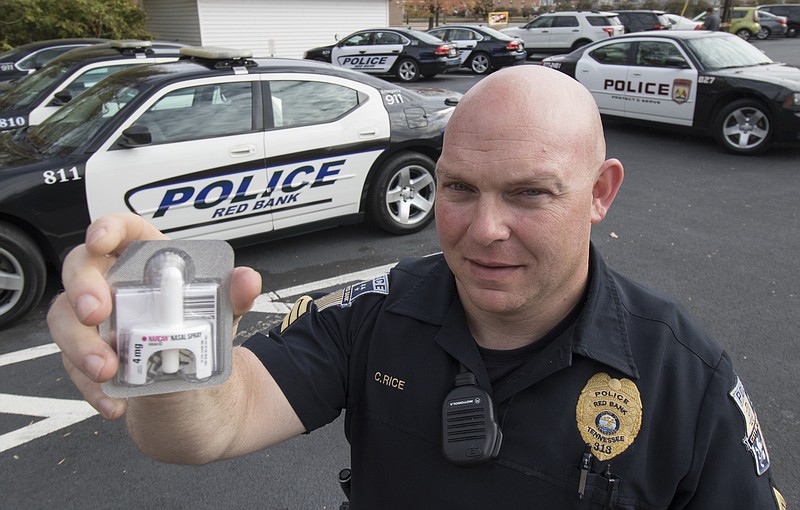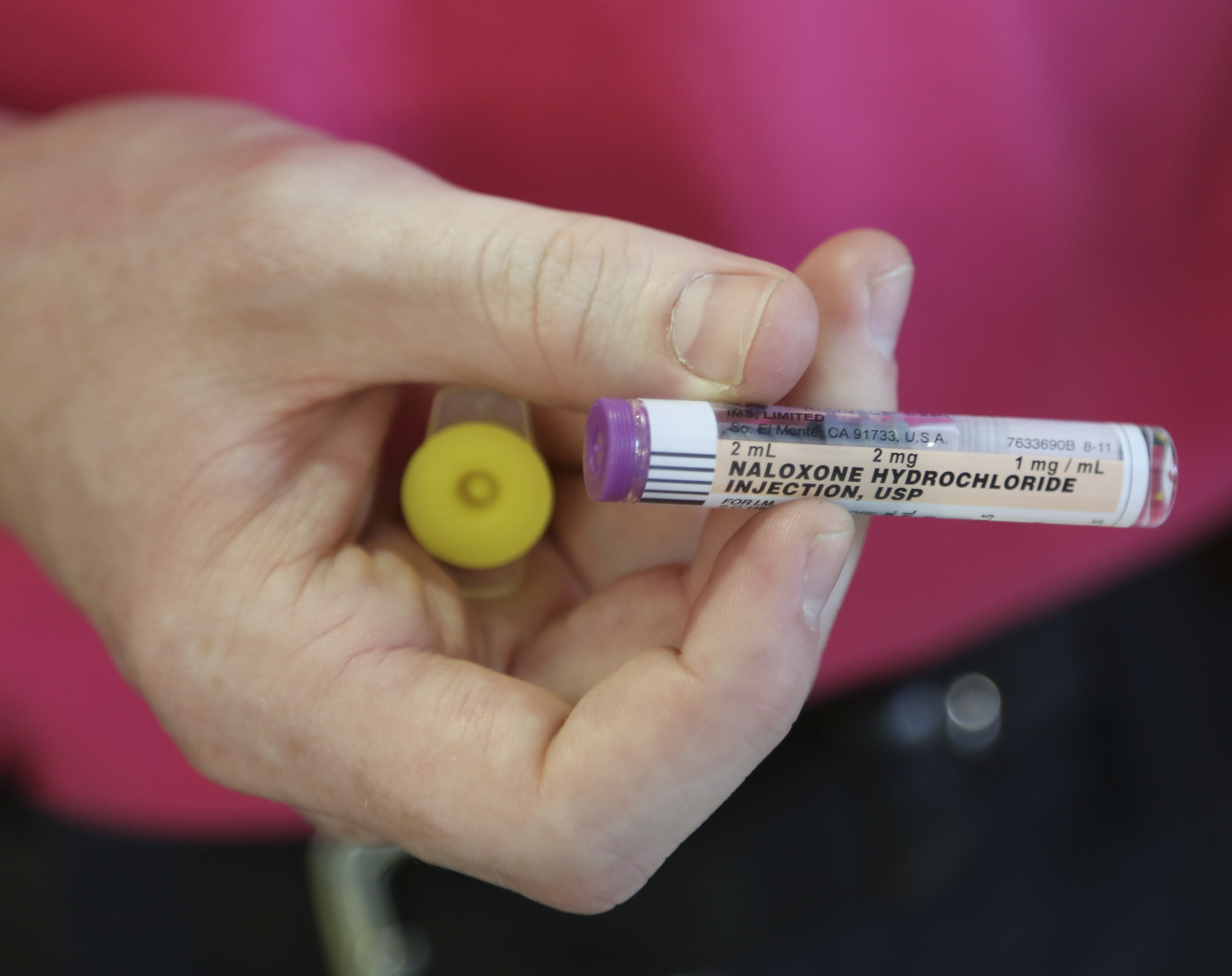On Wednesday morning, Jean Key held up a unit of Narcan nasal spray and started recounting the signs of an overdose.
"Unresponsiveness, slow or shallow breathing, turning pale, blue or gray, pinpoint pupils and choking sounds," she said. "These are some of the things to be on the lookout for."
Key, a regional opiate overdose prevention consultant for the Tennessee Department of Mental Health and Substance Abuse Services, showed the spray to a handful of people who attended her presentation at Eastgate Town Center.
More info
If you or someone you know is struggling with opioid addiction, call the Tennessee Redline at 1-800-889-9789 any time of any day to get connected to available services and resources.Anyone interested in attending a Narcan training session and receiving Narcan to keep on hand can visit hccoalition.org to reserve a spot at future events.
The group had come to learn about what to do in the event that someone they knew overdosed on opioids, and Key intended to send each of them out the door with their very own box of the emergency, lifesaving medication after explaining how and when to use it.
Wednesday's event was the latest community training session Key had conducted as part of the state's strategic target response to the overdose epidemic, an effort to stem the opioid crisis by putting Narcan into the hands of responders and laypeople who might encounter an overdose situation. The Tennessee Department of Mental Health and Substance Abuse Services has distributed about 300 units of Narcan throughout Southeast Tennessee since November, a value of nearly $37,000.
After letting those in attendance get a close look at the spray, Key returned to her PowerPoint presentation, going down a list of do's and don'ts for overdose treatment.
"Do not put the individual in a bath. They could drown," she said. "Don't induce vomiting or give them something to eat or drink. Always try to get them further medical assistance. Call 911. Please call 911."
Narcan has become indispensable to emergency responders throughout the country who have administered it to thousands of overdose victims, and Key said her office has worked closely with local authorities to supply those on the front lines with the resources they need. She said she planned to have a training session later that day with officers from a handful of the 10 counties in Southeast Tennessee that she works with.
But emergency responders can only get to a scene so fast, and putting Narcan into the hands of concerned community members might be the difference between life and death for someone down the road, even if it takes multiple doses. She warned that might be the case for extreme situations.
"If you don't see a positive response in a couple of minutes, you're going to want to do it again," she said. "And remember, if you have to administer a second dose, do not spray it up the same nostril."
Those in attendance said they'd seen the effects of the opioid epidemic firsthand and wanted to be prepared if they ever saw another overdose firsthand. Timothy Newson, Narcan in hand at the end of the meeting, said he'd be encouraging his communities to meet the crisis head on.
"As a veteran, we know a lot of guys who have been prescribed a lot of different medications and they need to know what the effects of those things can be," Newson said. "What I'm basically going to do is display this at my [Veterans of Foreign Wars office] with some literature before I take it home."
"I've been living in my neighborhood for 26 years and just recently we've had three separate overdoses there. This affects all of us."
Contact staff writer Emmett Gienapp at egienapp@timesfreepress.com or 423-757-6731. Follow him on Twitter @emmettgienapp.

